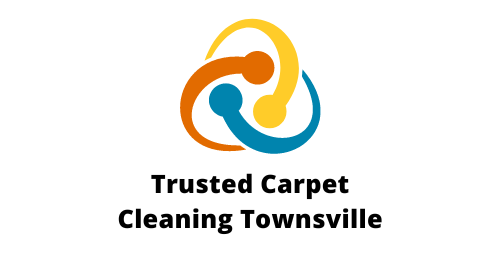Essential oils hold a crucial place in modern manufacturing, wellness, and lifestyle industries. Whether you’re a small business, large manufacturer, or a professional practitioner, understanding essential oils, from their origins and extraction to reliable sourcing, is fundamental. Range Products, based in Welshpool, Western Australia, is known among professionals for its quality assurance, stringent sourcing standards, and global reach for raw materials. This guide provides a clear, practical overview of essential oils: their definition, production, popular types, benefits, safe usage, and how both creators and businesses can seamlessly integrate them into daily operations.
Key Takeaways
- Essential oils are concentrated plant extracts valued for their aromatic and functional benefits in industries like wellness, skincare, and home care.
- Reliable sourcing and independent testing, such as those provided by Range Products, are crucial for quality assurance and regulatory compliance when using essential oils.
- Popular essential oils like lavender, tea tree, and eucalyptus offer specific benefits ranging from relaxation to natural cleaning and antibacterial properties.
- Safe use of essential oils involves proper dilution with carrier oils, careful storage, and patch tests to avoid irritation and adverse reactions.
- Businesses and individuals can differentiate their products and enhance consumer trust by using certified, high-grade essential oils with full documentation and traceability.
What Are Essential Oils?
Essential oils are concentrated, aromatic extracts taken from the leaves, flowers, stems, bark, or roots of plants. They are highly valued across industries for their distinctive scents, chemical properties, and potential functional benefits. Unlike carrier oils, which are pressed from seeds or nuts and are typically neutral in scent, essential oils capture a plant’s signature aroma and, by extension, certain beneficial compounds.
For producers and manufacturers, the distinction is clear: essential oils serve as active fragrance or therapeutic components, while carrier oils act as safe, neutral-based diluents or blending ingredients. High-grade essential oils, supplied in bulk or smaller quantities, are integral for aromatherapy, skincare, cosmetics, home care, and even certain food and beverage formulations.
At Range Products, the focus is on providing pure, unadulterated essential oils. Each batch undergoes strict independent testing to verify authenticity and quality, supporting product consistency and regulatory compliance for clients across multiple sectors.
How Essential Oils Are Made
Steam Distillation
The most common method for producing essential oils is steam distillation. Plant material is placed in a still, and steam passes through it, carrying the volatile aromatic compounds upwards. These vapours are then condensed and collected, separating the essential oil from water (known as the hydrosol). This process is precise and temperature-controlled, valued for its ability to preserve delicate plant constituents.
Cold Pressing
Certain oils, such as those from citrus peels (like lemon or orange), are extracted by cold pressing. This technique presses the plant material to expel both the essential oil and juice, with later separation of the oil. Cold pressing is preferred when heat could degrade the oil’s quality.
Solvent Extraction and CO2 Extraction
Some oils, including those from very delicate flowers, require solvent extraction or supercritical CO2 extraction. These methods allow for the capture of fragrance components that steam would destroy or not extract efficiently.
At Range Products, rigorous supplier audits ensure that extraction methods deliver oil of consistent potency and compliance with international quality standards. Certificates of analysis (COA) are available for all batches, affirming chemical composition, purity, and absence of contamination, information vital for manufacturers needing traceability in every drop.
Popular Types of Essential Oils and Their Uses
Essential oils cover a wide spectrum, with each type offering unique aromatic profiles and potential benefits.
- Lavender Oil: Prized for its calming, balancing scent, lavender is commonly found in skin care, relaxation products, and cleaning blends.
- Tea Tree Oil: Known for its sharp, medicinal aroma and natural antibacterial properties: widely used in personal care and antiseptic products, especially in the Australian market.
- Peppermint Oil: Popular in both topical and aromatic applications, it offers menthol notes and a cooling sensation, suitable for massage blends and home fragrance.
- Eucalyptus Oil: Strong, clean scent prized in cleaning, respiratory support, and wellness products.
- Rosemary, Lemon, and Frankincense Oils: Incorporated for their distinct aromas and traditional uses in bathing, meditation, and natural remedy formulations.
Professional buyers often consider the specific chemotype and origin when selecting oils for consistent end-product performance. Range Products stocks these high-demand oils in bulk and wholesale quantities, with batch-specific documentation readily provided for audits or certification needs.
Benefits of Essential Oils
The benefits of essential oils are widely acknowledged within aromatherapy, cosmetic, and household industries. While some claims require careful scrutiny, there is substantial evidence supporting certain uses:
- Aromatherapy and Mood: Inhalation of essential oil vapours may help manage relaxation, stress, and alertness. Lavender and chamomile oils, in particular, have research backing for mild sedative effects.
- Skin and Hair Care: Used properly, specific oils (e.g., tea tree and rosemary) provide functional benefits such as antibacterial activity in personal care items.
- Cleaning and Air Quality: Eucalyptus, lemon, and tea tree oils serve as natural alternatives for cleaning. They bring fragrance and, in some cases, additional cleansing or deodorising properties.
For producers, the tangible benefit is market differentiation: using rigorously tested, natural raw materials appeals strongly to wellness-conscious consumers. Range Products’ independent verification processes improve trust and allow customers to promote safety and transparency in their finished goods.
Safe Usage and Precautions
Safety is paramount when working with essential oils. These substances are highly concentrated and should not be applied undiluted to skin or ingested without proper formulation expertise.
Key precautions include:
- Dilute essential oils with a suitable carrier oil (such as fractionated coconut or sweet almond) before topical use.
- Store oils securely, out of reach of children, in opaque, airtight containers to prevent degradation.
- Conduct patch testing for skin reactions, particularly when introducing new oils to formulations or consumer products.
- Be aware of phototoxicity with oils like lemon and bergamot, do not apply these oils before sun exposure.
Range Products maintains batch-level documentation, including safety and allergen data, to ensure clients understand best practices and regulatory requirements, reducing risks for both business and end-users.
Incorporating Essential Oils Into Daily Life
For individuals creating at home, essential oils improve candles, bath soaks, skin serums, and cleaning sprays. Small businesses may use oils in hand-crafted soaps, cosmetics, or unique home fragrance lines, choosing suppliers that provide proof of purity and origin. Larger manufacturers and contract fillers often seek continuity, bulk capacity, and certification support.
Range Products offers support at all sizes of operation, with technical guidance, documentation, and supply chain clarity. Professional practitioners in aromatherapy and wellness fields benefit from knowing their oils are independently tested and batch-specific, keeping client safety and efficacy at the forefront. Integration is streamlined by providing both bulk quantities for large-scale manufacturing and smaller packs tailored for boutique or craft operations.
Frequently Asked Questions About Essential Oils
What are essential oils and how are they different from carrier oils?
Essential oils are concentrated aromatic extracts from plants, capturing their unique scents and compounds. Unlike carrier oils, which are neutral and used to dilute essential oils, essential oils act as the main fragrance or therapeutic component in various products.
How are essential oils typically extracted?
The most common methods of extracting essential oils are steam distillation, cold pressing, solvent extraction, and supercritical CO2 extraction. Each process preserves the plant’s aromatic compounds in different ways to obtain high-quality essential oils.
What are the most popular types of essential oils and their uses?
Popular essential oils include lavender for relaxation, tea tree for its antibacterial properties, peppermint for its cooling effect, and eucalyptus for cleaning and respiratory support. These oils are widely used in skincare, aromatherapy, and cleaning products.
What safety precautions should be followed when using essential oils?
Essential oils must be diluted with carrier oils before direct skin application, stored in airtight containers away from children, and patch-tested to check for reactions. Some oils, like citrus varieties, may cause photosensitivity and should not be used before sun exposure.
Can essential oils be ingested or used internally?
Essential oils should not be ingested or used internally unless formulated by professionals with expertise in essential oil safety. Ingestion without proper knowledge may pose significant health risks.
How can businesses ensure the quality of essential oils they purchase?
Businesses should source essential oils from suppliers who provide independent batch testing, certificates of analysis, and clear documentation. This helps guarantee chemical purity, authenticity, and regulatory compliance for finished products.

